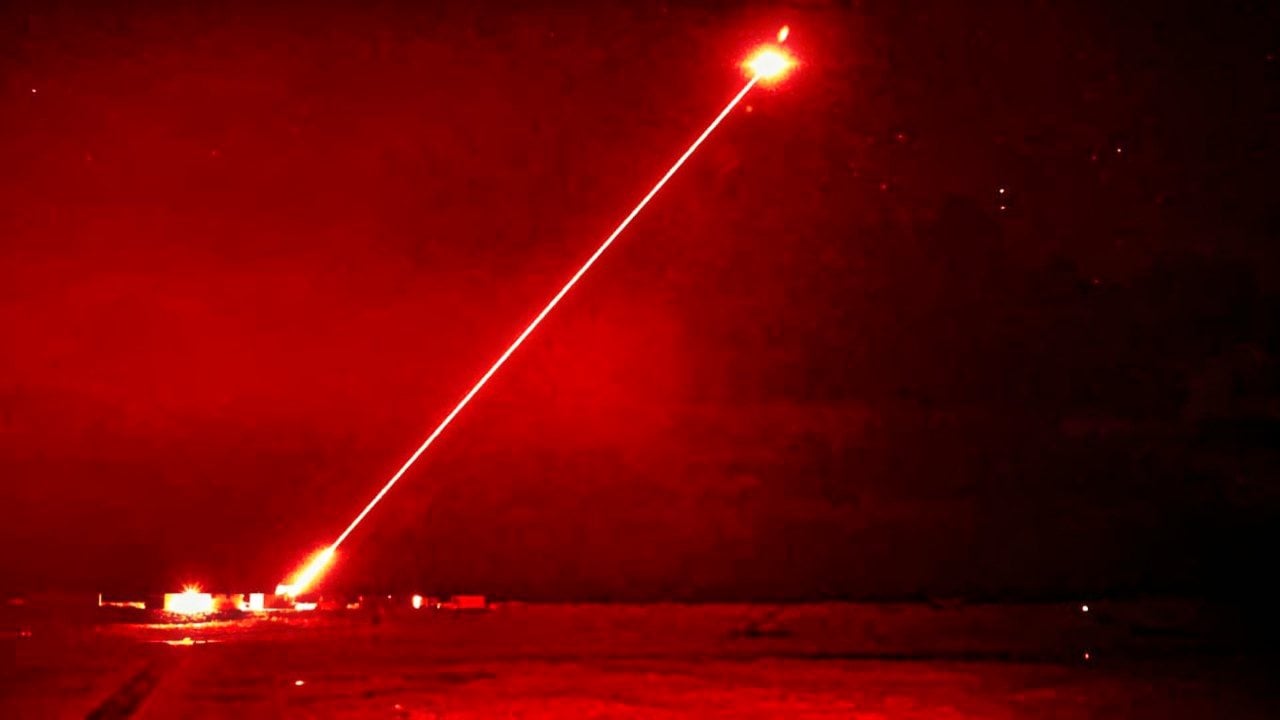DragonFire: The Naval Laser Weapon That Looks Like a Game Changer

Summary: The UK's Royal Navy is testing DragonFire, a laser-directed energy weapon (LDEW) capable of engaging targets at the speed of light, aiming for deployment by 2027.

-Meanwhile, the British Ministry of Defence's Project Ealing is developing a radio frequency (RF) cannon designed to disrupt electronic circuits of drones and other threats.
This non-lethal weapon generates an electromagnetic pulse (EMP) to disable devices temporarily and is currently being trialed by the 7th Air Defence Group. DEWs, including lasers and RF weapons, offer cost-effective, discrete, and versatile defense solutions, potentially revolutionizing military engagements across air, land, and sea domains.
UK Tests DragonFire Laser and Project Ealing RF Weapons
Earlier this year, it was reported that the UK's Royal Navy was testing the DragonFire, a line-of-sight laser-directed energy weapon (LDEW) that could potentially engage targets at the speed of light. The DragonFire's intense beam of light can reportedly cut through a target – a drone or missile – leading to its structural failure. The Royal Navy hopes to deploy the platform by 2027.
Now there is word that the British Ministry of Defence (MoD) is working on another type of directed energy weapon under its Project Ealing. Instead of a laser, this project could employ advanced radio frequency technology that would interfere with electronic circuits of drones and other aerial threats.
According to a report from Army Recognition, the core component of Project Ealing is a radio frequency cannon, which is being developed to detect, track, and engage a variety of targets across air, land, and sea domains. The weapon – which can be mounted on British Army support vehicles such as the HX60 truck – can generate an electromagnetic pulse (EMP) that couples with electronic circuits, overloads them and switches the devices off.

It is now being trialed by the 7th Air Defence Group at Thorney Island in West Sussex. The radio frequency cannon is non-lethal, and could only temporarily disable electronic systems without causing permanent damage.
Images of the test platform have been shared on X, the social media platform formerly known as Twitter.
DEW More Than Lasers
Directed energy weapons have earned comparisons to death rays and particle beams, but DEWs can also include any highly focused energy without a solid projectile, and that can include lasers, microwaves, and even sound beams. These can target personnel, missiles, vehicles, and optical devices.
Unlike kinetic weapons, these require no explosives, and could be far lower cost as they would only require an energy source.
DEWs also have the potential of being used discreetly, as the radiation may not generate sound while it could be invisible if outside the visible spectrum. In addition, DEWs could be unaffected by gravity, windage, and the Coriolis force, resulting in an almost perfectly flat trajectory. The use of high-powered microwave weapons can also be hard to attribute to a particular location or even actor.
A radio frequency cannon could have uses beyond shooting down incoming drones.
"Imagine a room full of computers, or a telephone exchange, anything that has got electricity flying through it, you can disrupt it," Matt Cork, program manager at the Defence Science and Technology Laboratory (DSTL) at Porton Down where Project Ealing is being developed, told The Times newspaper. "Just turning things off when we choose to turn things off leads to a potential where actually they [the enemy] stop trusting their own equipment. It creates that element of doubt in their ability to use their equipment when they need to use it."
Project Ealing has already earned comparisons to "the pinch" device – based on the very real "Z-pinch" developed at Sandia National Laboratories in New Mexico – that was employed in the 2001 film "Ocean's Eleven," which was used by the team of con artists to gain access to a Las Vegas casino vault. However, the British military is clearly thinking of countering an adversary's drones and aircraft, not about pulling a high-ticket heist – but no doubt the topic of "cashing in" has come up from time to time.
Author Experience and Expertise: Peter Suciu
Peter Suciu is a Michigan-based writer. He has contributed to more than four dozen magazines, newspapers, and websites with over 3,200 published pieces over a twenty-year career in journalism. He regularly writes about military hardware, firearms history, cybersecurity, politics, and international affairs. Peter is also a Contributing Writer for Forbes and Clearance Jobs. You can follow him on Twitter: @PeterSuciu. You can email the author: Editor@nationalinterest.org.
